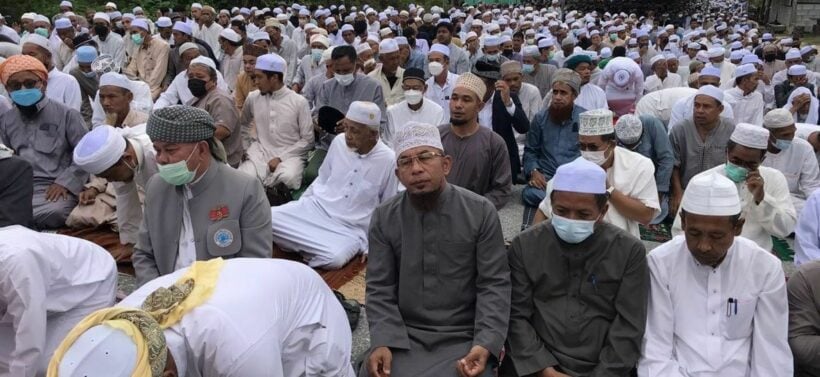4,000 Muslims protest against construction of Kuan Yin statue in southern Thailand

More than 4,000 Muslims gathered yesterday to protest against the construction of the largest Kuan Yin statue in the world on Khao Lon mountain in Songkhla province, southern Thailand.
President of the Islamic Committee of Songkhla Province Sakkriya Bilsal alongside an imam from every mosque in the province were among those opposing the construction of the 200-metre-tall statue of a Chinese goddess on the mountain, which is surrounded by a Muslim community.
Kuan Yin (also written Guanyin or Kuan Im) is the Chinese “Goddess of Mercy and Compassion,” a popular bodhisattva worshipped by Buddhists in China, Tibet, Japan, Korea, Thailand, Vietnam, and some Western Buddhist movements.
Protestors held banners that read “Villagers of Jana-Thepa do not welcome TPIPP.” Local Muslims believe that the construction of the statue is “not being built out of faith” due to the huge capital investment in the project by TPIPP.
TPI Polene Power Plc is a waste-to-energy power plant operator planning to build the statue and a controversial industrial estate in the Chana district.
Songkhla Muslims also protested the construction of the giant Kuan Yin statue back in April. A local imam explained the reason for the resistance…
“You may have the right to build anything on your land, but we want you to think over the plan… how to co-exist with a Muslim community.”
Southeast Asian religion – including popular Thai Buddhism practiced by 95% of the population – has been compared to a cloth “woven from silver and gold threads and embellished with jewels” (Assavavirulhakarn, 2010).
In other words, Thais may pay homage to the Buddha, give offerings to spirits, and worship Kuan Yin – without seeing their beliefs as contradicting, blasphemous, or feeling the need to synthesise these beliefs into a single system.
For Thai Buddhists, the presence of infrastructure and artwork from multiple religions in one place is normal. Artwork of religious deities also plays a big role in popular Thai religion, as exemplified in every Buddhist temple in the country.
However, Abrahamic religions such as Christianity and Islam stress the importance of worshipping only one God. Aniconism is a central tenet of Islam, which is the avoidance of depicting God in religious artwork. Islam does not allow idolatry, which is worshipping a physical object as if it were God.
So, it is hardly surprising that the concept of a 200-metre-tall statue of a Chinese goddess slap bang in a Muslim town is upsetting to local monotheistic Muslims.
SOURCE: KhaoSod
Latest Thailand News
Follow The Thaiger on Google News:


























